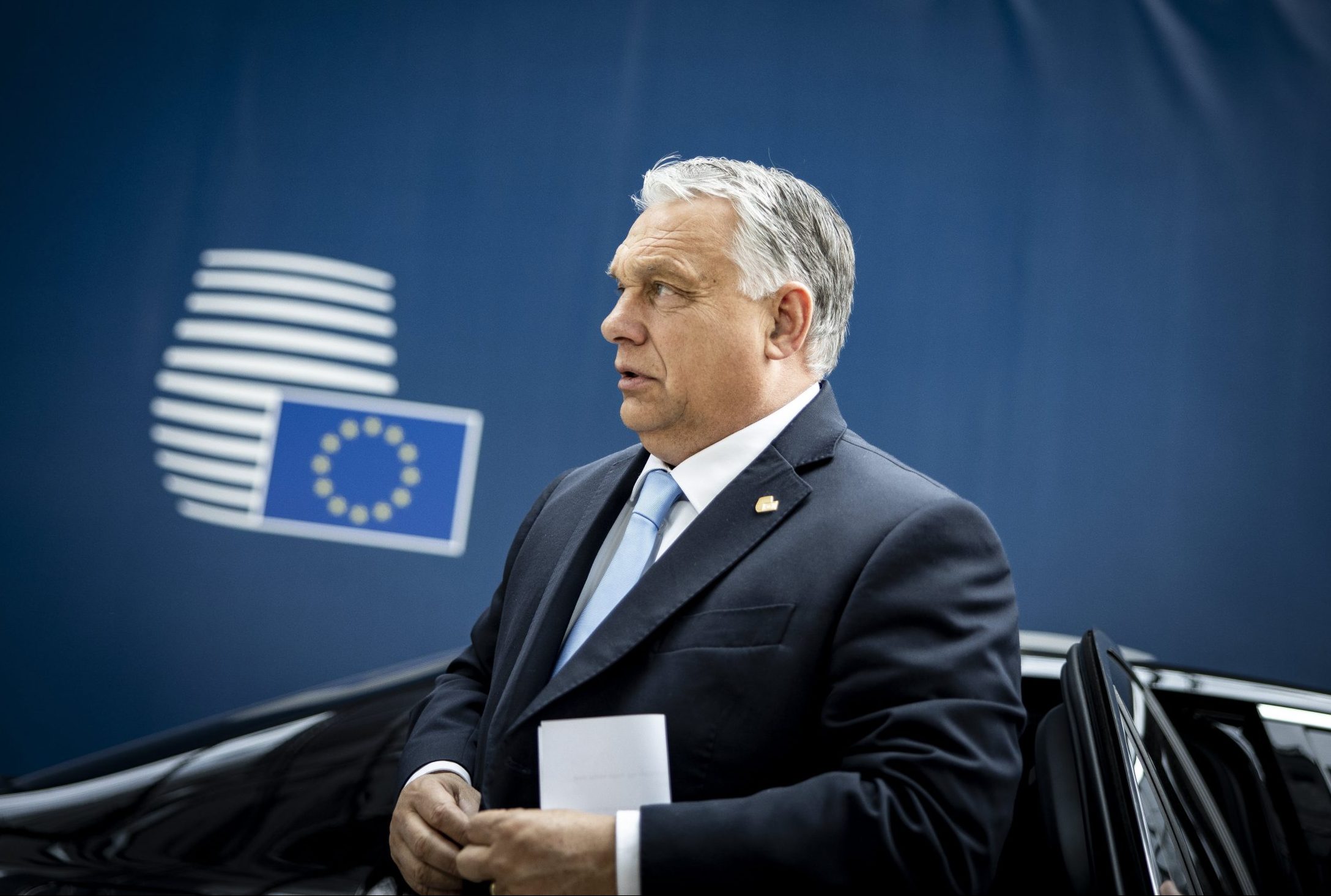
Viktor Orbán said that the European Union has been brought to the brink of bankruptcy, and it must be uncovered who is responsible for this.Continue reading
Secretary of State for International Communications and Relations, Zoltán Kovács, was a guest on Radio Kossuth, where he talked about the European Commission’s newest plan on migration. He emphasized that the government and the Hungarian nation has been opposing the idea of the migrant quota from the very beginning, reports Hirado.hu.
When the European Commission’s plan to create large migration centers and migrant ghettos is raised, it is not only the Hungarian government that has been opposing it with a very strong political will for eight years, but a national consultation, a referendum, and a constitutional amendment have made it abundantly clear that it goes against the will of the Hungarian people and is in total contradiction with the Hungarian constitutional system, highlighted Zoltán Kovács.
The State Secretary said that the European Commission does not want to stop migration, but to manage it, and a new term, the ‘migrant ghetto,’ has emerged:
There would be camps the size of cities somewhere on the southern border, and according to the EU’s proposal, Hungary would have to care for migrants in these camps until their asylum applications are assessed.”
If the assessment is not completed within 12 weeks, those staying there would have to be released, he added.
Hungary opposes the @EU_Commission‘s plan to create migrant ghettos, as such ghettos contradict the will of the Hungarian people and the country’s constitution.
Hungary has been opposing this plan for eight years, and the government remains committed to its position against… pic.twitter.com/UdRDecmaHE— Zoltan Kovacs (@zoltanspox) July 2, 2023
On the plan to manage migration, the politician recalled that proposals that had once been put forward in Brussels during the 2015 migration summit were being taken up again. He stated that the Hungarian government remains firmly committed to its previous position, opposing the distribution of migrants; the national consultation, the referendum, and the constitution have all provided the basis for this on the part of the nation.
Asked whether Hungary and Poland can prevent the plans from being implemented, Kovács said that
only a unanimous decision can be made on migration, otherwise the citizens of the individual states could rightly feel that decisions are being forced on them and that their will is being circumvented.
As for the Commission’s demand for extra contributions from Member States, the state secretary pointed out that it was clear that the EU’s seven-year budget had been called into question after two years of its adoption. He said that Member States did not know where the money had gone, there were no itemized accounts, and it was not clear exactly how the €70 billion the EU had paid out to Ukraine in various forms over the past year and a half had been spent.
❗️@PM_ViktorOrban: They demand Hungary to accommodate tens of thousands of migrants. We refuse to turn our land into a migrant ghetto. We’re steadfastly opposing these decisions and fighting with all our might. We won’t implement measures that compromise our sovereignty. pic.twitter.com/eNAehyI3Le
— Zoltan Kovacs (@zoltanspox) July 1, 2023
He pointed out that
while the EU expects its Member States to pay extra money, many countries, including Hungary and Poland, have not been paid the subsidies they have been owed for years from the EU funds.
Kovács remarked that although “no one has explained where the money has gone,” the European Union has already indicated what else it needs more money for: another 50 billion euros for Ukraine, billions more for migration management, settlement, and assistance, and the EU also wants to increase the salaries of its own bureaucracy.
The state secretary said that the EU summit in October is expected to decide on the proposals, which would require a unanimous vote. In the meantime, he said, there are months of unresolved issues ahead, pointing out that the Hungarian Prime Minister has already made it clear that
the current initiative on increasing Member States’ contributions is unacceptable to Hungary.
Meanwhile, police took action against 808 border crossers over the weekend last week, between Friday and Sunday, the National Police Headquarters announced on Monday. In the past week, 1,428 border crossers were arrested and escorted back to the other side of the southern border. In the previous week, from June 19 to 25, the number of apprehended persons was 1,980.
Featured photo via Facebook/SOS MEDITERRANEE France